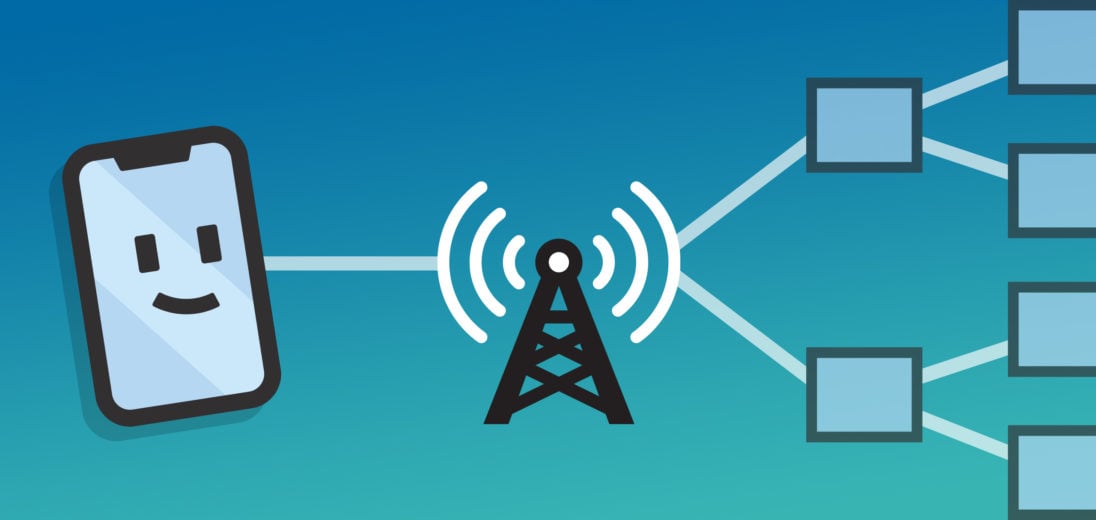You're online looking at new phones some of them say they're GSM locked. It's hard enough to choose a new phone, and now you're wondering what GSM is and what it means if your phone is GSM locked. In this article, I'll answer the question “What is GSM?” and explain the differences between GSM locked and unlocked phones.
GSM Technology: Explained
The Global System for Mobile Communications (GSM) is a cellular service technology used to transmit data and mobile voice services. GSM cell phones connect to GSM when they search for the nearest cells in the current surrounding area.
GSM provides subscribers with the ability to easily roam worldwide and connect to any GSM network. GSM technology has become an international standard for mobile service, making global cellular network access available.
Are CDMA Networks Different From GSM Networks?
If you've heard of GSM networks, chances are you may also be familiar with CDMA networks. CDMA stands for Code-Division Multiple Access.
The main thing you need to know is that both GSM and CDMA are types of cellular networks. However, there are some key differences between the two:
- GSM allows for easier travel and more global coverage.
- More users can connect at the same time on CDMA networks.
- The majority of CDMA networks don't allow for simultaneous data and voice transmissions. This means, for example, you won't always get your Instagram notifications until after you end your phone call.
Which Wireless Carriers Use GSM Networks?
Every major wireless carrier in the United States provides coverage using either a GSM or CDMA network. Some mobile virtual network operators use a combination of both. We also want to mention that there are other types of network technologies like HSPA+, which some carriers do use in addition to CDMA and GSM.
The two major carriers that operate on GSM networks are AT&T and T-Mobile. Verizon is the biggest wireless carrier in the United States using a CDMA network.
GSM Locked Versus Unlocked Phones
A locked cell phone is one that's bound to one wireless carrier or one type of wireless network. For example, if you buy a GSM locked phone from T-Mobile, it means you probably won't be able to transfer the phone over to another wireless carrier. You'll usually have to buy a new phone if you ever decide that you want to switch wireless carriers.
An unlocked phone is a one that you can use on different wireless carriers. You'll be able to transfer your phone from one wireless carrier to another if you decide to switch, so long as your phone is compatible with the plan you're switching to.
Can You Use A CDMA Locked Phone On A GSM Network?
If you have a CDMA locked phone with a wireless carrier such as Verizon it may be difficult to switch to a GSM carrier like AT&T or T-Mobile. However, it isn't completely impossible.
GSM networks use SIM cards, making it easier to transfer from one GSM network to another. On the other hand, CDMA locked phones don't always use SIM cards, often making them bound to one wireless carrier.
If your CDMA locked phone is eligible for unlocking, there is a chance you'll be able to use it when you switch to a GSM wireless carrier. However, this isn't a guarantee, so you'll have to check with your new wireless carrier first to see if your device's model can be accepted.
If your phone isn't compatible on the carrier you're switching too, check out our phone comparison tool to find the perfect phone for you!
Are You Ready To Switch?
Check out our cell phone plan comparison tool if you're interested in switching carriers. Whether you want to switch to a carrier on a GSM or CDMA network, we'll help you find the perfect plan (and maybe help you save money too)!
GSM Tech-Savvy!
All the cell phone technical jargon can be confusing, but having more information about what GSM is will give you something to base your future cell phone decisions on. If you found this article helpful, make sure to share it with your friends on social media. Leave a comment below to let us know about your experience with GSM phones and carriers!
Thanks for reading,
Bridget B.
